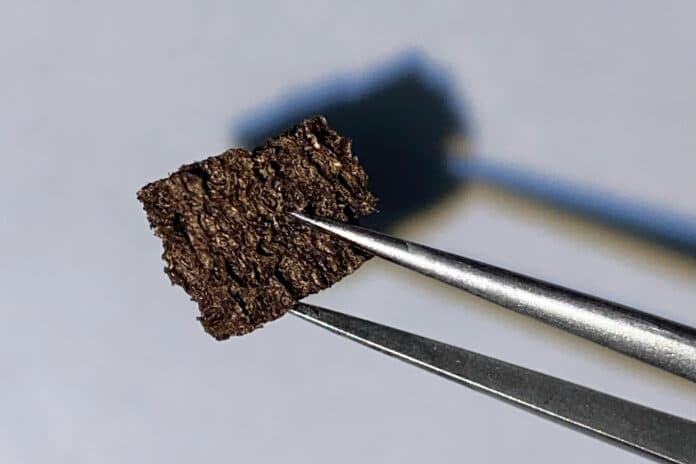The presence of toxic heavy metals in our water supply is a major environmental concern that has consequences for public health. Removing these heavy
The presence of toxic heavy metals in our water supply is a major environmental concern that has consequences for public health. Removing these heavy metal pollutants from water is a challenging process that requires constant attention and monitoring. Many techniques were used for removing heavy metals; each method has inherent advantages as well as one or more issues, challenges, and limitations in application.
Now, engineers at Illinois’ Northwestern University have developed an experimental new sponge that can remove metals – including toxic heavy metals like lead and critical metals like cobalt – from contaminated water, leaving safe, drinkable water behind.
The technology is built upon two previous studies to develop highly porous sponges for various aspects of environmental remediation.
Researchers started by placing a cheap, commercially available cellulose sponge in the slurry of manganese-doped goethite nanoparticles. The manganese-doped goethite nanoparticles were chosen because they are inexpensive to make, easily available, and non-toxic to humans. They then rinsed the coated sponges with water in order to wash away any loose particles. The result is a sponge with high-surface area nanoparticle-based coatings that measured just tens of nanometers in thickness.
When the new nanoparticle-coated sponge was submerged into a highly contaminated sample of tap water containing more than 1 part per million of lead, it effectively requested lead ions. It can filter lead from contaminated water to below detectable levels when coated onto a cellulose membrane – this makes the water safe to drink.
The team then rinsed the sponge with mildly acidified water, which caused the sponge to release the lead ions and be ready for another use. Although the sponge’s performance declined after the first use, it was still able to remove over 90% of lead ions from samples.
The team has now developed a platform called Nanomaterial Sponge Coatings for Heavy Metals (Nano-SCHeMe) to help other researchers differentiate which nanomaterials are best suited for particular applications.
“The presence of heavy metals in the water supply is an enormous public health challenge for the entire globe,” said Northwestern’s Vinayak Dravid, senior author of the study. “It is a gigaton problem that requires solutions that can be deployed easily, effectively, and inexpensively. That’s where our sponge comes in. It can remove the pollution and then be used again and again.”
The new sponge shows promise for future use as an inexpensive, easy-to-use tool in-home water filters or large-scale environmental remediation efforts.
Source: inceptivemind.com

